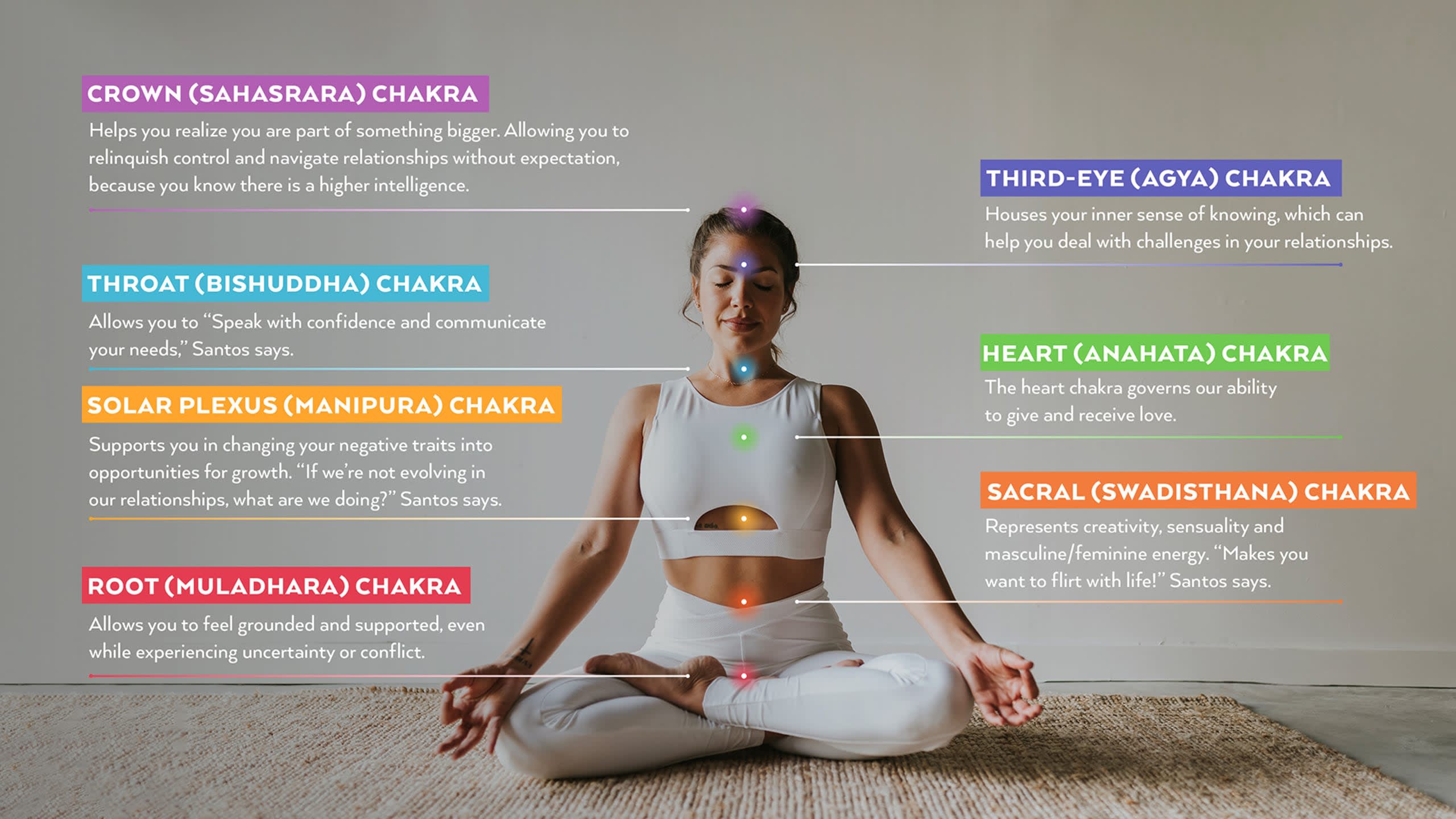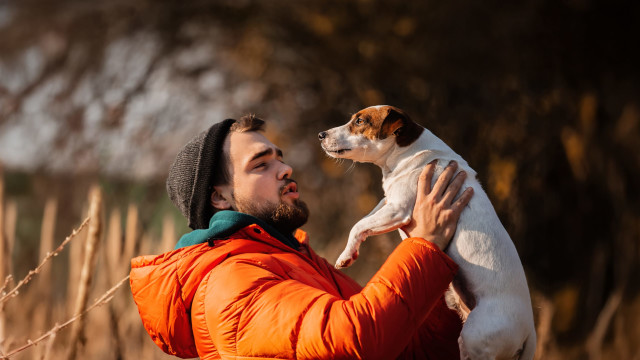Strong Connections on and off the Apps

Research shows feeling connected to other people can improve your physical and mental health, so it’s natural that humans look to nurture their relationships. Despite having social media, dating apps, and video games, it may sometimes feel like the devices invented to strengthen your bonds have the opposite effect.
Pro Tip: “Even after my stint in the monastery, when I came back to the real world, I still have to manage my relationship with technology quite actively,” says Jay Vidyarthi, a Roundglass meditation teacher.
Social technology is here to stay. But there are ways to leverage it to nurture and maintain healthy relationships.
Use Mindfulness to Develop a Relationship with Yourself
How you present yourself online can sometimes be different from your actual looks, behavior, or feelings. In fact, one study of a sample of 272 people found only 16% to 32% of adults expressed being honest about their age, gender, activities, and appearance while using social media, dating apps, anonymous chatrooms, or websites.
While creating a different identity on social media or dating apps may be fun, there can be a downside to only living in your online reality. Spending too much time on these platforms may take away from the experience of learning about your needs and how to cater to them. This lack of self-connection and self-awareness can negatively impact your wellbeing.
“Self-care is taking ownership of your total being from mind, body, spirit,” Yanni Brown, a relationship educator says. If you don’t know where to start, she recommends a noting and labeling practice, like the one below.
On a blank piece of paper, draw a circle and include your name at the center. Each time you feel your needs aren’t being met, draw a line from your name and write down that need. At the end of each week, take some time to look over this diagram so you can learn what situations you struggle with, and come up with solutions for each.
Mindfulness Tip: Caring for yourself shows up in everything that you do, “…your job, in how you’re going to allow people to treat you [and] in how you treat others,” Brown says.
Learn How to Set and Adhere to Healthy Boundaries
Boundaries help other people understand how to treat you. They also help determine how you treat others. Not having good boundaries means you’re more likely to overextend yourself and underdeliver because “you've over promised in a way that isn't sustainable,” Danielle Moore, a licensed psychotherapist says. It’s also important to set boundaries with yourself, especially if you realize certain behaviors make you feel bad or stop you from achieving any personal goals.
If you’re still learning about what your boundaries should be, Moore suggests that you consider committing to showing up as your authentic self regardless of the space you’re in. Heather Dranitsaris-Hilliard, a leadership expert, expands on this idea by highlighting the difference between your self-protective persona and authentic self.
Your self-protective persona is an adaptive response to your environment meant to protect you from harm. This could look like people pleasing or scrolling on Instagram to avoid feeling awkward or embarrassed in various social situations. Your authentic self reflects your intrinsic values and knowing what you stand for can help you develop boundaries around how you allow others to treat you — whether that’s in person or online.
Dranitsaris-Hilliard understands it can be hard to develop boundaries if you don't know whether your self-protective persona or authentic self is showing up in your relationships. But Moore suggests asking yourself questions like, “Am I uncomfortable in this situation or with this conversation?” Or “Do I have some unhealed trauma or experiences that have browbeat me into being quiet?” Posing these internal questions can help you learn which part of you is showing up in your relationships.
If it’s your self-protective persona, consider limiting your time with that person or environment until you learn how to connect with and show up as your authentic self.
Pro Tip: If you’re unsure of what your values are, try a guided meditation like this one, Connect to Your Inner Compass, by Lisa Kring, a Roundglass meditation teacher, to learn how to connect with your inner guide.
Boundaries Allow You to Be Kinder to Yourself
Nurturing and maintaining a relationship with other people can sometimes be difficult. This is because, “we are often navigating and managing multiple priorities in life,” says Alexis Mitchell, a doctoral student at the University of Northern Carolina in Charlotte.
It can be difficult to set up boundaries with the people you care about, but Brown suggests balancing that out by taking time for yourself. “That may be something as simple as saying, ‘I'm going to be gone for the day, no phones,’” Brown says.
It’s also important to be kind to yourself when it comes to online dating. With all the options to choose from, being so focused on finding the “perfect fit” can sometimes feel exhausting. And if you're primarily basing your decision on physical appearance, captions, or a short bio, it may make dating feel superficial. “This pattern comes from our own insecurity and uncertainty,” Vidyarthi says.
Spend some time practicing love and kindness that can help you feel good about yourself, just as you are. Then carry that energy of loving awareness into your presence online.
Mindfulness Tip: “See if you can view each person on the app as a wholistic human being, with a life story, family, passions, and challenges,” Vidyarthi says.
Use Self-Compassion to Befriend Loneliness
Loneliness can happen when you feel sad about being alone. But research suggests that meditation may help to alleviate the anxiety, insomnia, or lack of self-worth that can result from feeling lonely.
You can try putting yourself in situations where you meet potential friends or partner(s). Outside of Bumble BFF and PawDate, consider finding activities you like in your area, and go alone. You can also see if there are any places close by to watch live music, join a local fitness class, or anything hobby-related.
However you choose to put yourself out there, understand that each of these experiences may be uncomfortable or even scary. You can practice self-compassion in these moments by journaling about your emotions, or just taking some time to sit and be with them through meditation or mindful awareness.
How to Mindfully Challenge Yourself and Step Out of Your Comfort Zone
“I believe stepping out of your comfort zone is the only way to grow,” Kenya K. Stevens, author and founder of the Progressive Love Academy says. Stevens has been trained in meditation, yoga, and metaphysical thought for 30 years and helps in the transition process for married couples who want to become polyamorous.
She understands that being in love is an opportunity for both people to challenge each other, shed limiting beliefs, and grow. She also knows some couples want commitment and freedom but feel voicing and exploring that is intimidating.
“You have to know that you are your higher self, and that whatever happens, you're going to be fine,” Stevens says. If you’re unsure of how to step out of your comfort zone when it comes to spending time alone, dating, or trying something new with your partner(s), Stevens recommends getting to know your animal, ego, and higher self.
Stevens believes your animal is raw emotion, that primal knee-jerk reaction to your present experience. Your ego creates a story to explain the reason behind your emotions. The higher self is your conscious and intelligent being, or the real you.
Research shows that meditation is one way to get to know these parts of you as it can support you in regulating your emotions (the animal), and become more aware of the stories you tell yourself (the ego). So next time you’re feeling hesitant or scared to follow through with your decision, consider which part of you is talking, and if it isn’t your higher self, take the leap!
Pro Tip: Practice stepping out of your comfort zone by challenging yourself to do something uncomfortable each day, “[Everyday] I put myself through the task of going toward a challenge, rather than running away from it,” Stevens says.
You can even try stepping out of your comfort zone by incorporating more playfulness into your relationships.
Why Playfulness in Your Relationships Matters
Scholars state that playfulness between romantic partners can help in solving tension, enhancing communication, and strengthening the overall positive experience of the relationship. If you don’t know where to start, Stevens suggests incorporating playfulness into your communication style. “In my view, playfulness is allowing that inner child to be a part of the relationship and that's a part of communication,” she says.
Consider the animal, ego, and higher self-analogy. Stevens recommends voicing which part of you has something to say, then trying what she calls a simulation. “When I'm venting, that's really my animal or my inner child being upset, so I can ask one of my husbands to tell me I’m the most beautiful woman in the world, or whatever my little girl wants, I can ask for,” she says.
Pro Tip: “Talking is an everyday thing in a relationship, [weave in] playfulness, so that everything doesn’t turn into an argument,” Stevens says.
Let’s look at some other ways you can practice healthy communication.
Healthy Communication Methods Help Nurture Your Relationships
Normalize regularly checking in with your partner(s), colleagues, and friends so you can talk about any problems you might have before they become too large to work through. You can also try using the UPLVL Communication System, which Stevens and her husband created after realizing the benefits of their yoga and meditation training on their relationship.
Before communicating your feelings and thoughts consider asking the other person for consent to vent. If they agree, share a disclaimer so they know whether your animal or ego is speaking. “You've done nothing wrong. This is just my ego speaking,” Stevens says. Doing so helps the other person not take what you say personally. You close by voicing a number from one to 10 to convey the intensity of your emotions. “Ten is the height of the emotion, and one is the lowest,” Stevens says.
This communication style can help prevent you from getting consumed by your emotions. Knowing which part of you truly needs attention may generate awareness of your feelings, which can support you in regulating and talking constructively about them. Sharing how strong your emotions are can help to provide clarity on whether this is a safe space for you to disclose them.
Pro Tip: “[Using mindfulness] we can attend to our emotional needs, positively reframe the emotion [and] communicate with others about how we’re feeling which is really important for relationship health,” Mitchell says.
Now that you’ve familiarized yourself with some keys to nurturing your relationships, let’s look at a few situations where you can put them into practice.
Use Compassion to Become More Loving
Gary Chapman’s “The Five Love Languages: How to Express Heartfelt Commitment to Your Mate” helps couples understand each other’s needs when it comes to the way each person expresses and receives love. But some people think the way they like to receive love is also how they should express it, and this isn’t necessarily true.
Loving someone in their love language means you might have to make some concessions around how you like to express affection, especially if how you show love doesn’t align with how your partner(s) want to receive it. Practicing compassion outside of your relationship(s) can help you learn how to do this. “I'm a big fan of volunteering, where your services are needed, because when you really boil it all down, we're here to serve,” Brown says.
Whether it’s at an animal shelter, or just taking some time to pick up trash around your neighborhood, you might realize how nice it can be to help others, without expecting anything in return. You can bring these lessons back to your relationships, which may strengthen your bond with your partner(s), colleagues, friends, and family.
Pro Tip: “Know that opportunities for growth in relationships are always about you ... pay attention to the ways you can see things differently,” Almeiri Santos, a Roundglass meditation teacher, says.
Step Out of Your Comfort Zone and Get to Know Your Chakras
Nurturing the relationship with yourself is an important part of strengthening your connection with other people. One way to know yourself better is by getting acquainted with your chakras. The chakras are seven energy centers believed to exist from the base of your spine to the crown of your head, and they can have an impact on your overall wellbeing. “If your chakras are out of balance … you’re going to get caught up in your vicious cycle of believing what your mind is telling you,” Santos says.
Listening to your ego can make it difficult to generate the awareness needed to process your emotions without self-judgement, effectively communicate your feelings, and remain open to hearing other people’s feedback.
Whether you’re looking to balance your chakras, or are skeptical about whether they even exist, here is a short practice Santos recommends, which may help you notice and balance them.
A Short Practice to Balance Your Chakras
Step 1. Close your eyes.
Step 2. Take a deep, cleansing breath.
Step 3. Focus your attention on the base of your spine.
Step 4. Imagine a beautiful red light. This is your root chakra which helps to make you feel stable and grounded.
Step 5. Repeat this process by focusing your attention on your sacral, solar plexus, heart, throat, third eye, and crown chakra. You can even use the chart below to get to know each color.

Pro Tip: The best part about this chakra balancing practice is you can do it anywhere, “While commuting to work, before bed, entering an important meeting, or having a difficult conversation,” Santos says.
Nurture Your Relationships for a Happier, More Meaningful Life
Using mindfulness to strengthen the relationship with yourself and others can help you generate more awareness of your emotions and teach you how to cope with and express them in a healthy way.
Mindfulness also helps you deal with any stress you would otherwise carry into your in-person and digital connections. “If we are constantly consumed by [our emotions or stressors], then we have little cognitive resources to nurture our relationship[s],” Mitchell says.
We encourage you to step out of your comfort zone and try any of the tips above you haven’t heard about before. See how your new approach can impact the quality of your connections.
Try this course, Roadmap to Your Chakras by Ellaeenah Niloufer, a Roundglass meditation teacher to learn more about how these energy centers relate to all areas of your life.
Key Takeaways:
- Show up for yourself by keeping a journal of your needs. Check in on them weekly.
- Learn to set boundaries by starting small. Try leaving your phone on silent during the evening.
- Challenge yourself by stepping out of your comfort zone. Try a new social activity.







